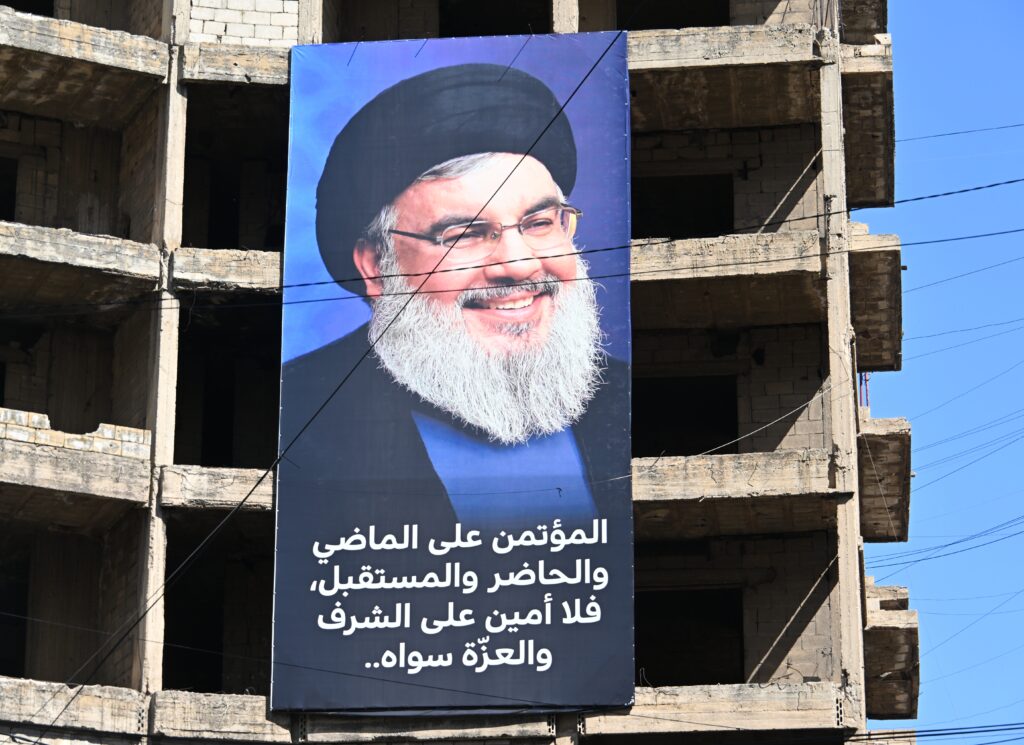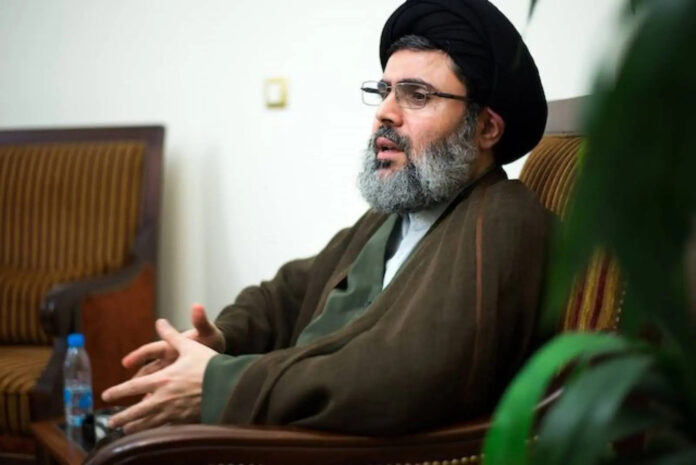Hezbollah has confirmed that its top leader Hashem Safieddine was killed in an Israeli airstrike in southern Beirut almost three weeks ago.
Safieddine, who was the head of Hezbollah’s highest political decision-making body, the executive council, was widely expected to be elected the group’s next leader after the death of Secretary-General Hassan Nasrallah in an Israeli airstrike last month.
In a statement Hezbollah said: “We mourn to the nation of martyrs and fighters, the nation of resistance and victory, [the ascension of] a great leader and noble martyr on the path to Al-Quds, the head of Hezbollah’s Executive Council, the honourable scholar Sayyed Hashem Safieddine, may Allah bless his soul. He ascended to his Lord, pleased and content, patient and steadfast, alongside the best of his fellow fighters, in a brutal and aggressive Zionist airstrike.
“Sayyed Hashem has now joined his brother, our most revered and beloved martyr, Hezbollah’s Secretary-General His Eminence Sayyed Hassan Nasrallah. He was the most supportive brother to him, standing by him as Al-Abbas stood by his brother Imam Hussein, peace be upon them. He was his brother, his right hand, his banner bearer, his trusted confidant in times of hardship, and his dependable companion during difficulties. He followed in the footsteps of the early believers, defending the religion of Allah — pious, righteous, pioneering, capable, a leader, and a martyr.
“Sayyed Hashem Safieddine dedicated his life to serving Hezbollah and the Islamic Resistance, its society, and for many years responsibly and skillfully managed the Executive Council and its various institutions and units across different fields of resistance. He remained close to the fighters, connected to the public, and loving to the families of the martyrs, until Allah honoured him with martyrdom, joining the luminous convoy of the martyrs of Karbala…
“We pledge to our great martyr and his fellow martyrs to continue the path of resistance and jihad until the goals of freedom and victory are achieved.”
Hezbollah’s confirmation came after the Israeli army claimed yesterday that it killed Hashem Safieddine in an airstrike on southern Beirut earlier this month.
Subscribe to our newsletter and stay updated on the latest news and updates from around the Muslim world!
The army “can now confirm that Hisham Safieddine, Head of the Hezbollah Executive Council, and Ali Hussein Hazima, Commander of Hezbollah’s Intelligence Headquarters, were eliminated by the IDF (army), along with additional Hezbollah commanders,” an Israeli military statement said.
“They were eliminated in a strike carried out approximately three weeks ago in the area of Dahieh,” it added.
The statement claimed that more than 25 members of Hezbollah’s intelligence division were at the headquarters when the strike was carried out, including Bilal Saib Aish, “who was in charge of aerial intelligence gathering in Hezbollah’s intelligence headquarters in Syria.”
“Hisham Safieddine was a member of the Shura Council, Hezbollah’s most senior military-political forum, responsible for the decision-making and policy-making,” it added.
It further stated that Hisham was the “cousin of Hassan Nasrallah, the former leader of Hezbollah. Due to his familial and personal ties with Nasrallah, Hisham had a significant influence on decision-making within the group.”
Hashem Safieddine: A Military and Political Leader
Hashem Safieddine was born in 1964 in Deir Qanoun Al-Nahr, southern Lebanon, to a well-known Shia family in the area. He was a cousin of Hassan Nasrallah.
Alongside Nasrallah, Safieddine received his education in the 1980s at Shia seminaries in Najaf, Iraq, and Qom.
In 1983, he married the daughter of Mohammed Ali Al-Amin, a member of the legislative council of the Islamic Shia Council in Lebanon.
In 2020, his son, Reza, married Zainab, the daughter of the former commander of the Iranian Quds Force, General Qassem Soleimani, who was assassinated by US forces in Baghdad on 3 January 2020.
His brother, Abdullah, is Hezbollah’s representative in Iran, and he has been sanctioned by the United States for alleged involvement in drug trafficking and money laundering for the party.

In 1994, Hezbollah recalled Safieddine from the seminary in Qom to assume political and military responsibilities. He was one of three figures mentored by former Hezbollah leader Imad Mughniyeh (who was assassinated by Israel in Damascus in February 2008) and prepared to take on leadership roles. The others were Nasrallah and Nabil Farouk.
After returning from Qom, Safieddine assumed the role of head of Hezbollah’s executive council, effectively the party’s internal government. This made him responsible for implementing internal policies, developing the party’s administrative structure, and overseeing Hezbollah’s institutions, finances, and investments both domestically and abroad, particularly in the Arab world, Africa and Latin America.
Safieddine became the second most powerful man in Hezbollah after Nasrallah, with major responsibilities in both the military and political wings of the party.
In 2017, the United States listed Safieddine as a “terrorist,” imposing economic sanctions on him in 2018, which included the seizure of his assets and accounts and a ban on financial transactions with him.
Saudi Arabia, Bahrain, and the UAE also designated him a “terrorist” alongside other Hezbollah leaders.
Some reports suggest that after learning of an Israeli plot to assassinate him in 2008, Nasrallah recommended Safieddine as his successor in the event of his assassination.
Israel has mounted a huge air campaign in Lebanon since last month against what it claims are Hezbollah targets in an escalation from a year of cross-border warfare between Israel and the Lebanese group since the start of Israel’s brutal offensive on Gaza.
At least 2,546 people have been killed and more than 11,860 others injured in Israeli attacks since October last year, according to Lebanese health authorities.
Israel expanded the conflict on October 1 this year by launching a ground assault into southern Lebanon.























